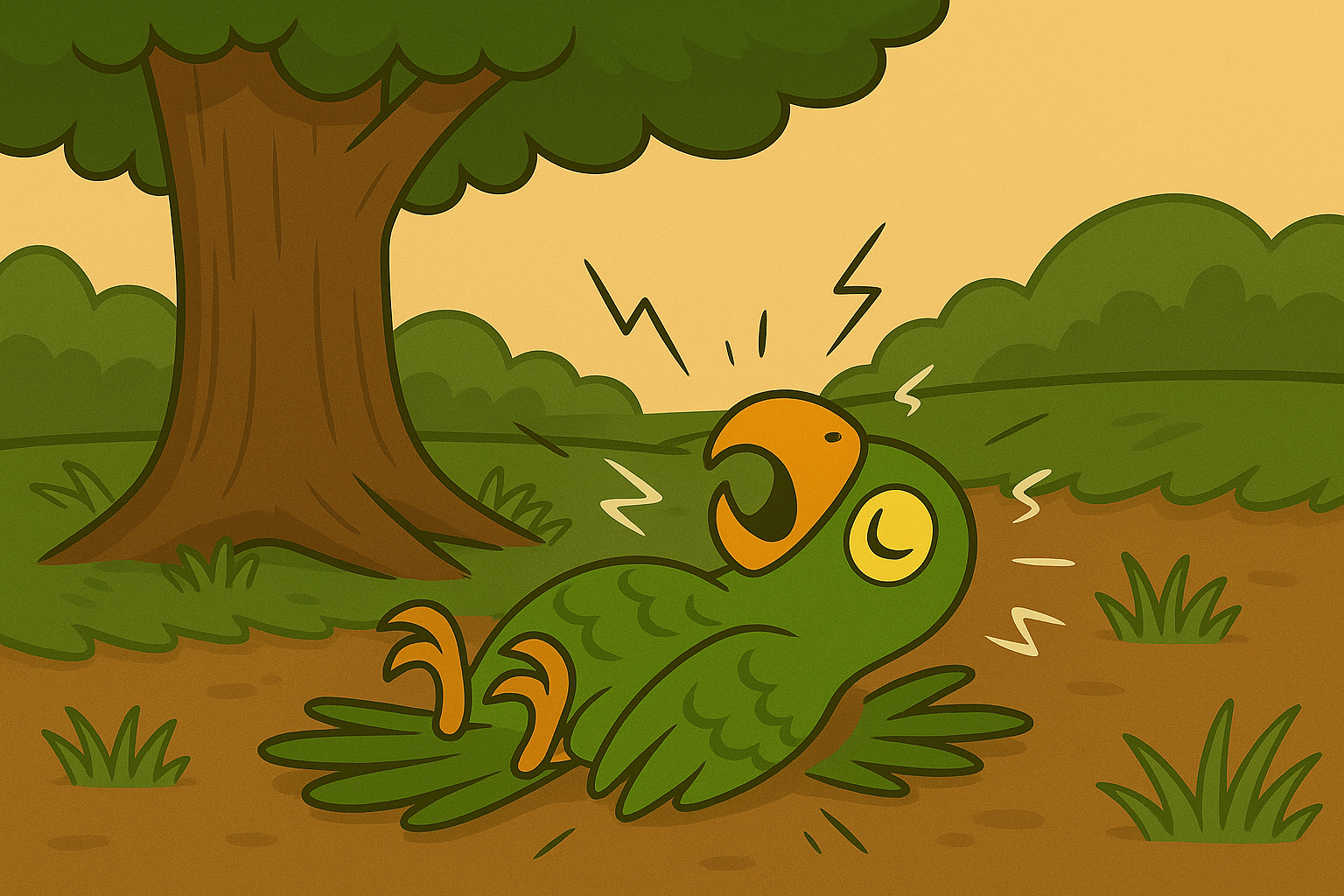
Cotorrín came into my life like a miracle disguised as an injured bird. A woman had found him convulsing under a tree, with broken wings and a bent little leg. In that moment, I—Solexis, a fourteen-year-old girl—knew my life was about to take a new direction. I took him to the vet; he, frightened, would hide in my chest every time we saw needles, but I never hesitated. Between vitamin shots and medication for his seizures, Cotorrín—who had once been called Kiara or Ricky, though neither name fit him—gave me six years of unconditional love, when the doctors had only given him six months to live.
Cotorrín was my son, my everything. He slept by my side, waking me up every morning with a loud “HELLOOOO, MY LITTLE PARRROTTTTT!”. I showered him with affection, and he responded by raising his wings when I sang him llanera music. He was so smart he could recognize vowels, beatbox, compliment people, and—with his beak shimmering—cry like a baby when he was in pain. At every doctor’s visit, he clung to my chest to avoid the injections; his trust in me became as strong as his instinct to survive.
During those years, Cotorrín taught me that love can do anything. I learned to treasure every day as if it were the last: every breakfast together, every walk to the park where he perched on my shoulder, every afternoon we spent ruffling feathers in the wind. He showed me the beauty of loving freely: I’d leave millet and water for him to feed the wild birds who visited the garden, and he reminded me that a real parrot is meant to live flying, not caged.
When I had an accident and my grandmother cared for him, Cotorrín understood the importance of extended family: he accepted his great-grandmother’s affection, though he remained jealous when it came to me. Over time, the crisis in Venezuela forced me to leave in search of opportunity; every video call with him was a virtual kiss, a reminder that I needed to come back.
Eventually, his seizures grew worse. One day I knew he couldn’t go on: my grandmother held him in her arms, giving him love so that his final breath would be peaceful. Then I understood that being “free” meant letting him stop fighting: he had run his race against time and won every second of tenderness. Cotorrín flew to the little parrot heaven with his bright orange eyes, leaving me with the certainty that true love doesn’t place chains—it gives wings.
Today, I think of him every time I hear the song of a Mealy Amazon, and I know that in that other life, my beloved Cotorrín keeps shouting to the world that he is alive: “HELLOOOO, MY LITTLE PARRROTTTTT!”. His memory pushes me to open my hand and let every bird find its own sky.
